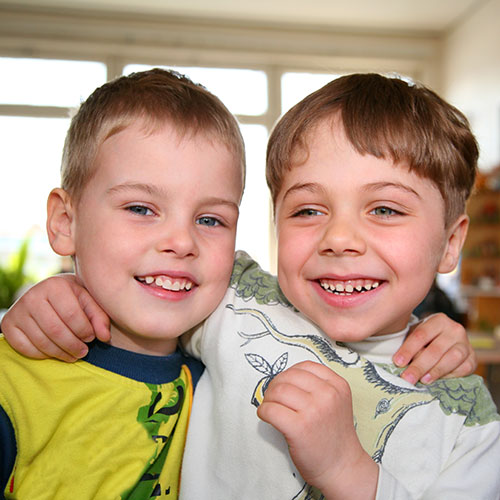The term Kindergarten is derived from German which means garden for the children .
Also known as PreSchool, it is an educational program designed for young children to prepare them for school. This part of early education for children, acts as a transition from home to school environment.
This is sometimes called a "15 hour program" or "funded kindergarten". The government will help the kindergarten with the cost of your child attending for 15 hours each week. This helps keep your kindergarten fees low. Benefits of kindergarten
Kindergarten is an important step for young children. We strongly recommended all children go to kindergarten.
Research has shown that:
- early education helps set children up for a bright future
- attending 2 years of quality kindergarten has even greater benefits
- at kindergarten children learn skills that they'll take with them throughout their life.
Kindergarten improves children’s health and wellbeing, helps them to develop strong social skills and encourages a love of learning. Children who go to kindergarten are more independent and confident and are more likely to make a smooth move to primary school.

What your child learns
Kindergarten programs are delivered by a qualified early childhood teacher. They're designed to improve your child’s development in:
- social skills, like how to play with other children in a calm, sharing and rewarding way
- self-awareness and respect for others
- emotional skills, for example understanding their feelings
- language, literacy and numeracy skills, such as reading stories and counting objects
- joy of learning and group activities, such as talking, drawing and making things together with other children their own age
- ability to make new friends
- exposure to new ideas and concepts.
Kindergarten also gives families:
- opportunities to meet other families and make community connections
- access to support for children with special needs
- access to other community services.
Information you need to provide
You will need to provide the kindergarten or council with the following information:
- your child’s name and address and details of any special needs
- information about yourself and any other parents, carers or guardians in your child’s life
- details of people who can collect your child
- your child’s birth certificate or other identity documents
- your child's medical health and immunisation status
- details of any parenting orders or legal matters to do with the care or safety of your child. The kindergarten must keep your information private.
'No Jab No Play'
To have your child's enrolment confirmed, you need to give the kindergarten:
- a current immunisation history statement from the Australian Immunisation Register
- the statement must show your child is up to date with all vaccinations that are due for their age, or they're up to date with the vaccinations they're able to receive.
This is known as 'No Jab No Play'.
The immunisation history statement from the Australian Immunisation Register is the only document accepted for enrolments. Letters from GPs or local councils are not accepted. You can find out more about 'No Jab No Play' on the Better Health Channel. 'No Jab No Play' and income support You need to keep your child's vaccinations current to receive some family assistance payments.
For more information, visit the Services Australia website or your local Centrelink or Medicare Service Centre.



